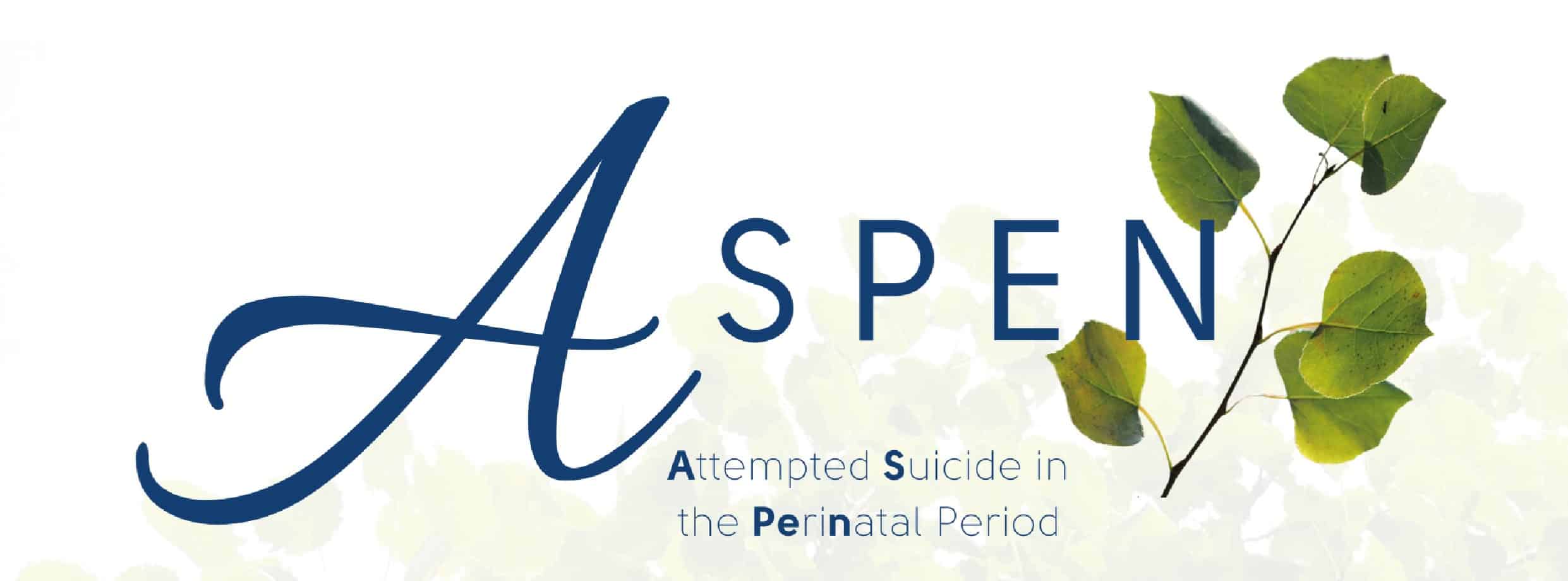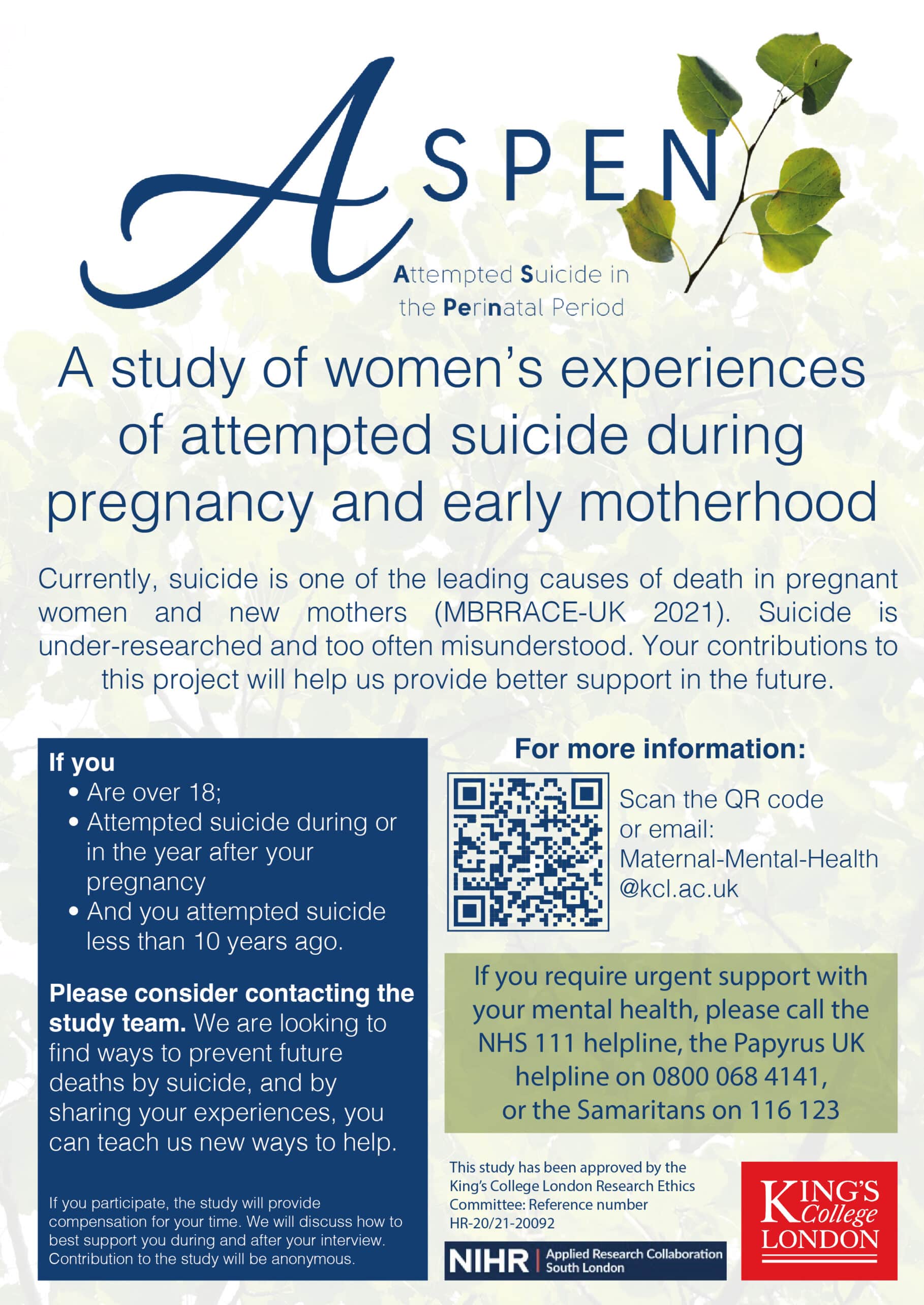21st October 2022
We are delighted to share this Voices blog by Kaat de Backer, Midwife and Research Associate in Maternal and Perinatal Mental Health at King’s College London, outlining a new important study of attempted suicide in the perinatal period and how to better support pregnant women and new mothers who feel suicidal.
Originally scheduled for World Suicide Prevention Day (10 September) to support raising awareness of suicide in the perinatal period, the timing of this blog’s publication was delayed in respect of our national mourning.

Becoming a parent is probably one of the most transformative experiences in life. And while this journey is a positive one for many, we know that about one in four women will struggle with their mental health during pregnancy or in the year after birth, also called the perinatal period (peri meaning ‘around’, natal meaning birth). Many women find support in their partner, family and friends, and healthcare professionals, and overcome these perinatal mental health difficulties so they can go on to fully enjoy their baby and new role as a mother. Unfortunately, we know that for some women this is not the case.
To this day, suicide remains the leading cause of death in the year after giving birth, with devastating effects on those families and children.
Little is known about the factors leading up to a suicide attempt in the perinatal period, and particularly women’s interactions with healthcare services, their needs and expectations. The Attempted Suicide in the PEriNatal Period (ASPEN) study wants to change this, by listening to the experiences of women who had an attempted suicide during the perinatal period, and that of their partner, friends, or family members. By doing so, it can further our understanding of the difficulties these women are experiencing and help inform future prevention strategies.
The ASPEN-study team has worked closely with women with lived experience of perinatal mental health difficulties, healthcare professionals and a wide range of third sector organisations to ensure this study is conducted sensitively and safely. Ethical approval was granted by the King’s College London Ethical Committee.
The study is now open for recruitment. We are looking for women who would like to share their experiences with a member of the research team, through a one-off interview. We would like to hear from women aged over 18-years who had a suicide attempt during pregnancy or the year after birth, within the last 10 years, and who feel safe enough to talk about their experiences. We are all trained in trauma-informed interviewing skills and can work around women’s schedules and preferences for the interview (face-to-face, telephone, video call). Participants will be reimbursed for their time.
Please get in touch with the study team via email ([email protected]) or via their contact form:
Kaat de Backer, Midwife and Research Associate in Maternal and Perinatal Mental Health at King’s College
At the iHV, we have trained over 3,350 Champions in Perinatal and Infant Mental Health. Integral to that training is raising awareness about risks, the evidence base and what health visitors and others working with families in the perinatal period can do to reduce the risk of suicide. We share specific learning and key findings from MBRRACE, whose most recent report findings will be presented on Thursday 10 November.








